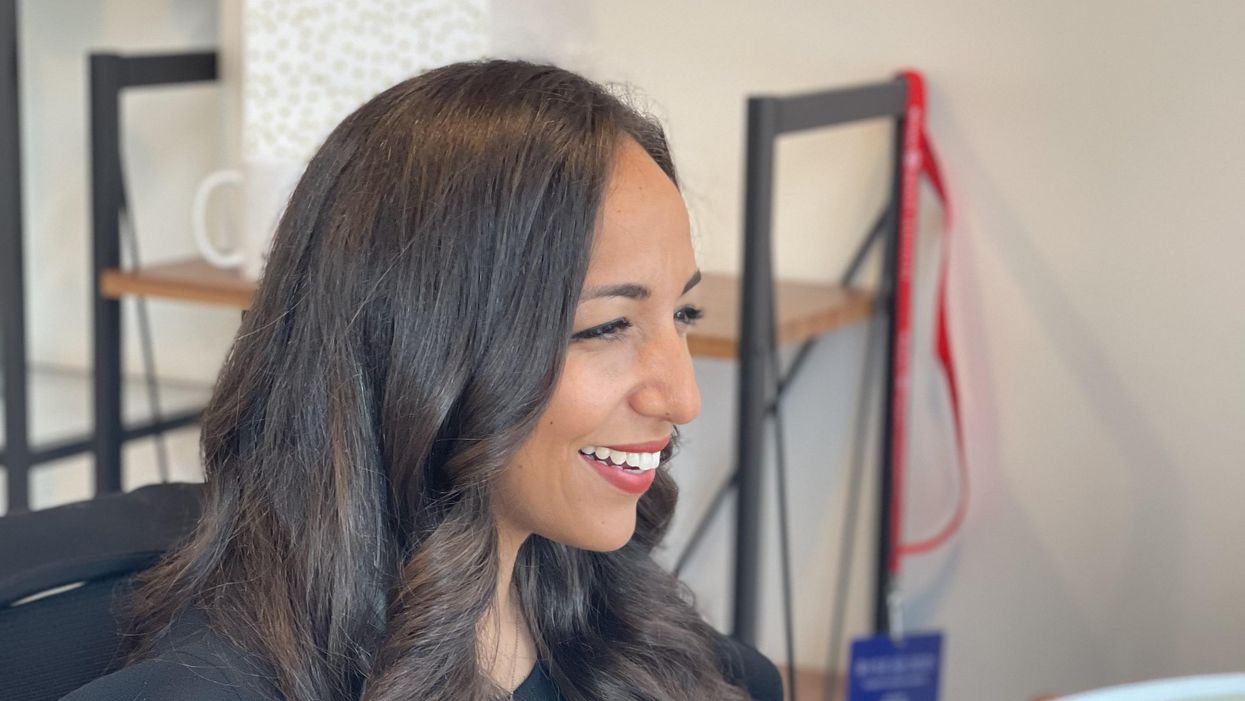We've heard the saying, "You can't have your cake and eat it, too."
We've been asked — for the sake of preventing conflict — to "not talk politics" in certain settings.
But what if bringing your politics to the table made the conversation productive? What if, in fact, you could have your cake and eat it, too? At the annual Future Summit, young lawmakers are not asked to drop the letter behind their name; instead, they are asked to leverage their legislative experience in order to co-create innovative policy solutions.
Yes, at Future Summit, you can have your politics and eat it, too.
The Millennial Action Project is a national, nonpartisan organization dedicated to ushering in more collaborative governance at the state and federal level. We believe in empowering our young leaders with the tools and relationships they need to better serve their constituencies, regardless of who they voted for. One of those tools is the annual Future Summit.
Millennial policymakers attend Future Summit because it provides them a unique space and opportunity to speak candidly about their legislative experience, take winning off the table, and find common ground with those across the aisle. One legislator shared with me how, telling me: "The event offered solutions-focused discussions and strategies to build a path out of this period of partisan division." This is exactly why we find our work vital. Legislators covered the future of work, energy and environment, criminal justice, democracy reform, term limits, legislative session lengths, and more.
I won't pretend this work is easy. That's precisely why it energizes me that legislators who might have begun Future Summit thinking they couldn't find common ground did just that. They embodied our ethos: Listen first, say "we", build trust, empower others, break barriers and find ways to innovate freely.
While this work isn't done overnight, we are planting the seeds to reimagine our democracy. Future Summit enables young lawmakers to make progress toward a new approach to politics that our country greatly needs: post-partisanship. By moving beyond conventional party divides — by refusing to settle for middle-of-the-road solutions that satisfy no party — we create a third, more enterprising option: new, innovative policy solutions. These solutions may not neatly fit anywhere on the two-dimensional spectrum. That's the point. Instead, they exist in a new dimension that can only be achieved only through collaboration, and most of all empathy for differing perspectives.
One legislator shared how she makes a point of connecting with someone seemingly "as far opposite" of her on the political spectrum each legislative session, and coauthors a bill where they can find common ground. This is innovation: setting aside political affiliation for pioneering solutions and finding strength in difference.
I greatly appreciated the opportunity to exchange ideas with fellow legislators from across the country at the 2021 Future Summit, and was particularly impressed with the commitment to bipartisanship exhibited throughout the conference. Several sessions sparked new ideas for me, and I was inspired to grow my presence on social channels during the media lunchtime session. — Democratic state Rep. Aaron Ling Johanson of Hawaii
Future Summit has gone on to birth State Future Caucuses, most recently in Connecticut and Oklahoma, with the help of MAP. In 2018, Utah state Sen. Daniel Thatcher gained momentum at Future Summit to catalyze the implementation of what we now know as the national suicide prevention hotline, 9-8-8. From his efforts cross-pollinating at the state level, this legislation was introduced in Congress as HR 4194, and was signed into law by President Donald Trump on Oct. 19, 2020.
This event encapsulates every aspect of MAP's work; it represents more than old school bipartisanship, it's a laboratory curating a new political culture rooted in collaboration. The work done here is just the beginning of real millennial-driven policy change. It lays the groundwork for productive politics and a more representative and inclusive form of governance.
We must stretch the spirit of Future Summit far beyond the two-day event. Legislators can do this by co-creating legislation with colleagues across the aisle. Americans can do this by sharing positive bridge-building stories that often don't make the national headlines.
Future Summit proves that our generation can change the political culture and restore public trust in democracy.




















Trump & Hegseth gave Mark Kelly a huge 2028 gift